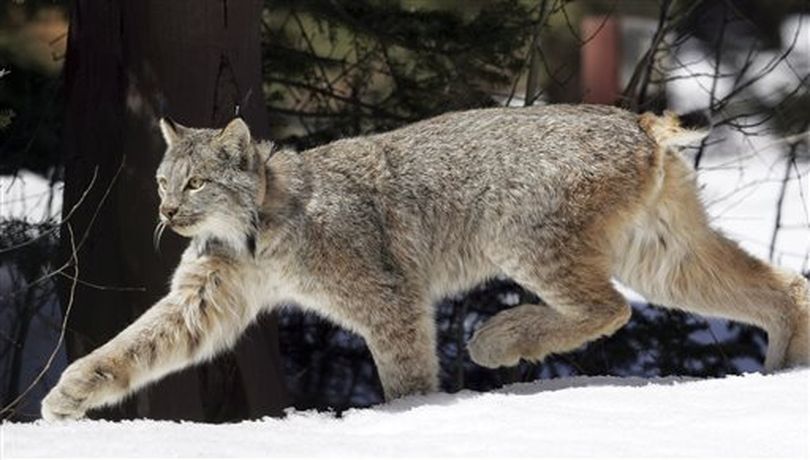Lawsuit filed to protect lynx from Idaho traps

ENDANGERED SPECIES -- Five conservation groups filed a lawsuit today against the governor of Idaho and other state officials to halt trapping that can harm or kill Canada lynx, one of the rarest cats in the United States.
The lawsuit charges Gov. Butch Otter, the director of the Idaho Department of Fish and Game, and members of the state Fish and Game Commission with violations of the Endangered Species Act resulting from state permitting that leads to trapping of lynx, a threatened species numbering as few as 100 animals in Idaho.
- See news story here.
The state has not taken action to satisfy the previous complaints, the organizations said in filing the suit. The groups include the Center for Biological Diversity, Western Watersheds Project, Friends of the Clearwater, WildEarth Guardians and the Western Environmental Law Center.
The groups say increases in fur prices, especially for bobcat, have increased interest in trapping and cited at least three confirmed incidents of lynx being unintentionally trapped in the last two years.
The groups say the Idaho Department of Fish and Game should develop a conservation plan with measures to minimize incidental trapping of lynx. Such a plan would include restrictions on body-crushing and steel-jaw traps and snares, reporting requirements, and a daily trap check requirement throughout lynx habitat. They say similar lawsuits in Minnesota and Maine have led to such restrictions.
Last year the Fish and Wildlife Service proposed more than 26 million acres of critical habitat across six states for the Canada lynx, which faces ongoing threats from habitat destruction and reduced snowpack from climate change.
Lynx are medium-sized, long-legged cats, ranging up to 24 pounds. They are generally nocturnal and well adapted to hunting snowshoe hare at high elevations.
The lawsuit, which was filed today in federal district court in Boise, can be read here.
